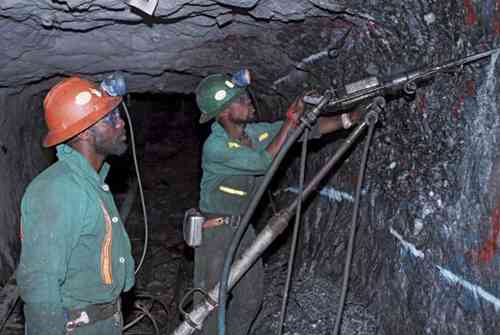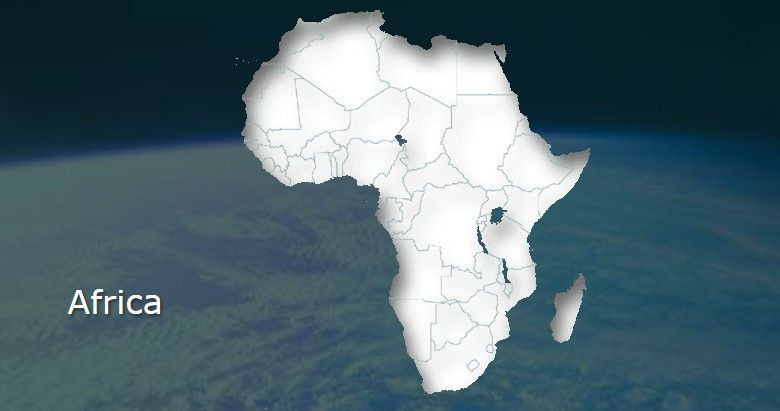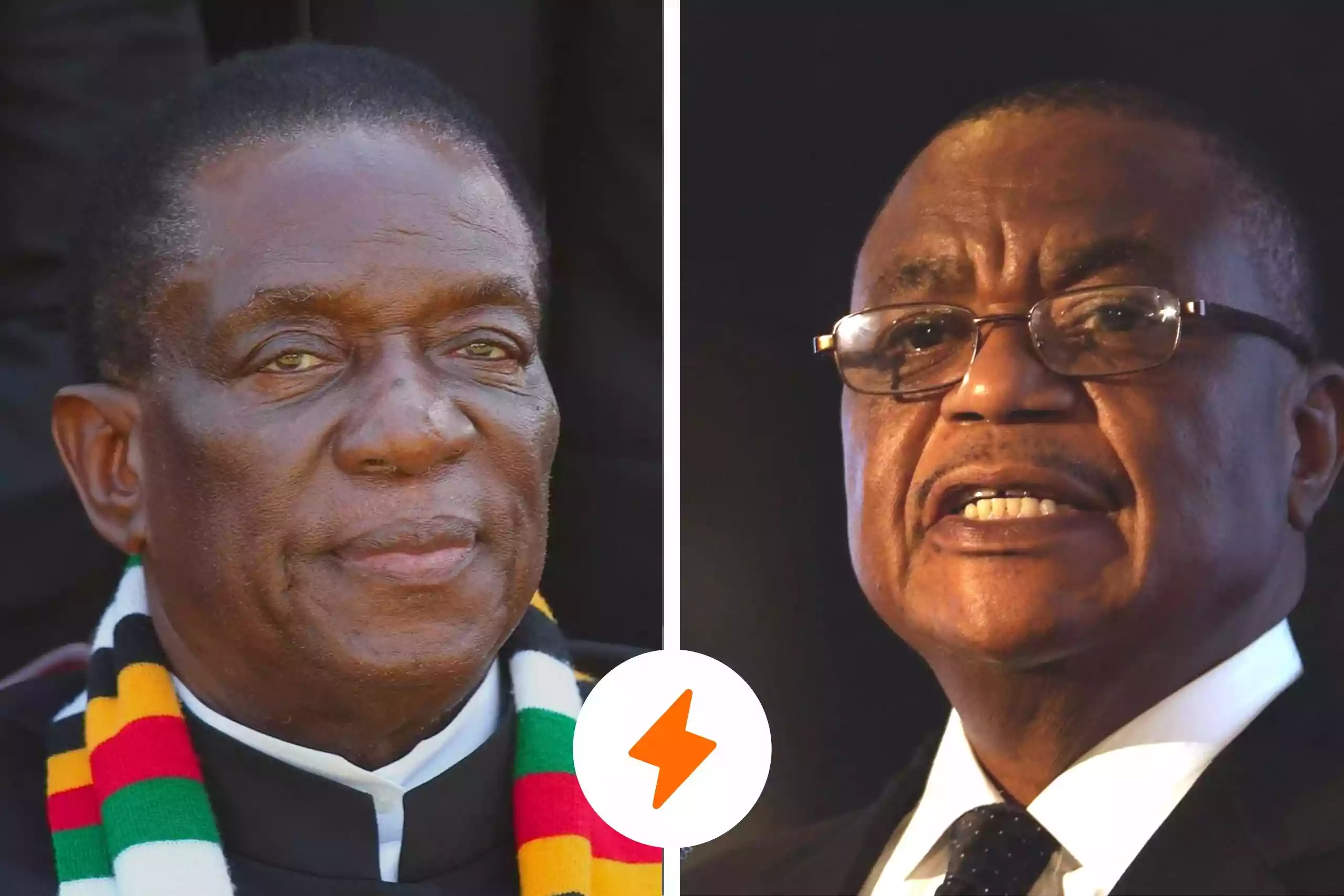
The young men brace for the first shock of cold water as they enter the river, easing their way into another day of illegal gold mining.
David Mauta and Wisdom Nyakurima, both 18, stand knee-deep in the Odzi River near the eastern Zimbabwe mining city of Mutare and shovel gravel onto a woven mat. They hinge their hopes on finding flakes of shiny gold. But it’s another metal whose dangers they don’t recognize that may have a more lasting impact.
Every day, they touch and breathe mercury, a silvery chemical element that carries deadly implications. The toxic liquid metal is key to their gold-mining efforts, as is the government, which purchases their gold even as officials vow to eliminate the use of mercury. The young men are unregistered artisanal miners and freelance workers who don’t have a licence to operate. They sift through rocks in the river and dump beads of mercury over the sediment, which clings to gold.
Then they light a match, using the flame to separate the mercury from the gold, a process that shoots toxic vapours into the air.
Inhaling these fumes or regular contact with mercury can each have devastating effects on the nervous system and prove fatal, according to the World Health Organisation. The chemical quietly invades the body and leads to brain damage, developmental disorders in infants and young children, and irreparable kidney damage. Elemental mercury, the liquid form, can travel through the air and settle on land or in water, making it a pernicious threat to people and animals.
Miners from Indonesia to Peru have turned to mercury for decades to extract prized gold. So much so that the United Nations Environment Programme says artisanal and small-scale gold miners make up the biggest source of mercury pollution in the world. It’s one of the few chemicals considered so detrimental that more than 100 countries have agreed to end its use.
Zimbabwe joined them last year by ratifying the United Nations Minamata Convention on Mercury, an international treaty adopted in 2013 that seeks to phase out the metal to protect human health and the environment. The government also passed a law last year that bans mercury use in or near rivers, which carries a heavy fine and up to 12 months in jail.
“Government is happy with the rise in gold output from artisanal and small-scale miners, and yet this gold is produced through the use of mercury,” Farai Maguwu says, who is the executive director of the Centre for Natural Resource Governance, a Mutare-based nonprofit that recently released a report documenting how officials buy gold without regard to its production. “Benefiting from economic activities that use mercury is illegal.”
- Mavhunga puts DeMbare into Chibuku quarterfinals
- Bulls to charge into Zimbabwe gold stocks
- Ndiraya concerned as goals dry up
- Letters: How solar power is transforming African farms
Keep Reading
Global Press Journal first documented the widespread use of mercury among Zimbabwe’s artisanal miners in 2017, before the country ratified the treaty.
Today, about 500 000 artisanal miners operate without a license, according to official figures. The majority live in poverty as the country’s economy is marked by inflation and raging unemployment.
Zimbabwe’s mining officials claim they aren’t violating the treaty or the law and insist they are balancing economic needs with health concerns. “The convention does not say that you must eliminate the use of mercury; because if we did that, these miners would now have to find some other source of livelihood,” Danmore Nhukarume, director of metallurgy in the Ministry of Mines and Mining Development says.
“We cannot prescribe them to stop. We have livelihoods that depend on the [mining] sector. We must ensure that they are protected and we move with them as we transform from mercury use [to] mercury reduction to mercury elimination.”
The Minamata Convention doesn’t give a set timeline to reduce the use of mercury among artisanal miners, although it does require countries to develop an action plan within three years and to work toward its elimination. Nhukarume says Zimbabwe is on track to do so; a report on its progress is due to the UN at the end of the year. He calls the plan “our guiding document toward making mercury history.”
Zimbabwe also has received technical and financial support from the Minamata Convention and others to strengthen the adoption of mercury-free technologies. Anesu Freddy, a spokesperson with the United Nations Development Programme, which is leading the organisation’s mercury elimination efforts, referred questions about Zimbabwe’s adherence to the convention to the government. Those involved in Mutare’s mining industry say they haven’t seen any government effort to stop its use. “It does not make sense to ratify international conventions without change on the ground or even informing the miners of these dangers or giving them alternatives,” Lloyd Sesemani, the director of Zivai Community Empowerment Trust, an organisation focused on transparency in the mining sector says.
Gold, as the country’s largest export, is vital to its economy. Zimbabwe sold US$2,14 billion worth of gold in 2020, ranking it 35th among the world’s gold exporters.
The main importers of Zimbabwe’s gold were the United Arab Emirates, Uganda, South Africa, Hong Kong and Ukraine. Artisanal miners, often lone workers who mine illegally or without adequate machinery, are key to its successdeliver more than 60% of the gold produced in the country, according to Zimbabwe’s 2022 national budget, up from 43% in 2016.
Peter Magaramombe, the general manager at Fidelity Gold Refiners, the government’s only official buyer of gold, insists a mining licence is a prerequisite to selling gold to the agency.
But Clemence Tembo, a gold-buying agent for the agency and gold miner, says he only needs to see a person’s identification to make a purchase. “We buy gold, no questions asked,” he says. Tembo’s statement matches transactions witnessed by Global Press Journal in Mutare. (Magaramombe didn’t respond to follow-up requests for comment.)
Nyakurima is among the unregistered artisanal miners who sell gold to a middleman. From what he mines, he’s able to take care of himself and his three siblings, whom he’s raising after his parents passed away. When he recently learned about the dangers that mercury presents, he decided to take his chances. He needs the income.
Much of it is smuggled in through the country’s porous borders. And for most miners, it’s easy to access. Nyakurima gets it from middlemen who buy his gold and then sell it for a profit to other bulk buyers or the government subsidiary. Their buying prices are usually low, but they go to the miners’ location and provide the mercury for free. — Global Press.











